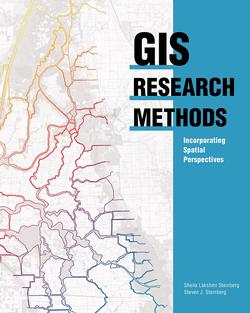Читать книгу GIS Research Methods - Steven J. Steinberg - Страница 68
На сайте Литреса книга снята с продажи.
Determining project goals
ОглавлениеAny person interested in conducting research ultimately begins by determining the main idea, or purpose, of his or her research. For any discipline, the possibilities are endless, especially when it comes to incorporating GIS into the research plan. Many different factors can affect the purpose of your research, such as your personal interests and the interests of the sponsoring organization or agency. Applied research projects may have more than a single purpose, setting out to answer a series of questions or to work toward a solution for specific social problems.
Any time you are going to engage in a research project, you need a clear picture of your goals. A surprising number of people carry out an analysis without asking, What is the purpose of this study? Having a clear project goal is very important because, beyond being the reason for engaging in research in the first place, the goal directly informs the data to locate, collect, and prepare for eventual analysis. A project may have more than one goal—different participants in and funders of the project process may have different goals. If this is the case, it is useful to develop a set of overarching project objectives and a list of needed data prior to beginning the data collection process. One of the most troublesome things that can occur in carrying out an analysis is realizing after the fact that an essential and easy-to-acquire piece of data was not collected as part of the original design. Going back to fill in missing data after the fact, assuming it is possible, can be time consuming, expensive, and, of course, embarrassing. In the GIS realm, you will also need to determine how you will encode the data in a GIS-compatible format that simultaneously works within the GIS and effectively meets the requirements of your study. Chapter 5 addresses these issues in more detail.
Some questions you might ask yourself in developing goals for your study include the following:
Why are you engaging in this study?
What sorts of relationships do you want to examine as a part of your study?
What causes or organizations might your study benefit?
Who is funding your study?
Are you studying patterns of human behavior?
If you are able to answer these questions clearly and up front, you will have a much easier time defining the specific goals of the project and thus the data and variables you will require in achieving your objectives.
